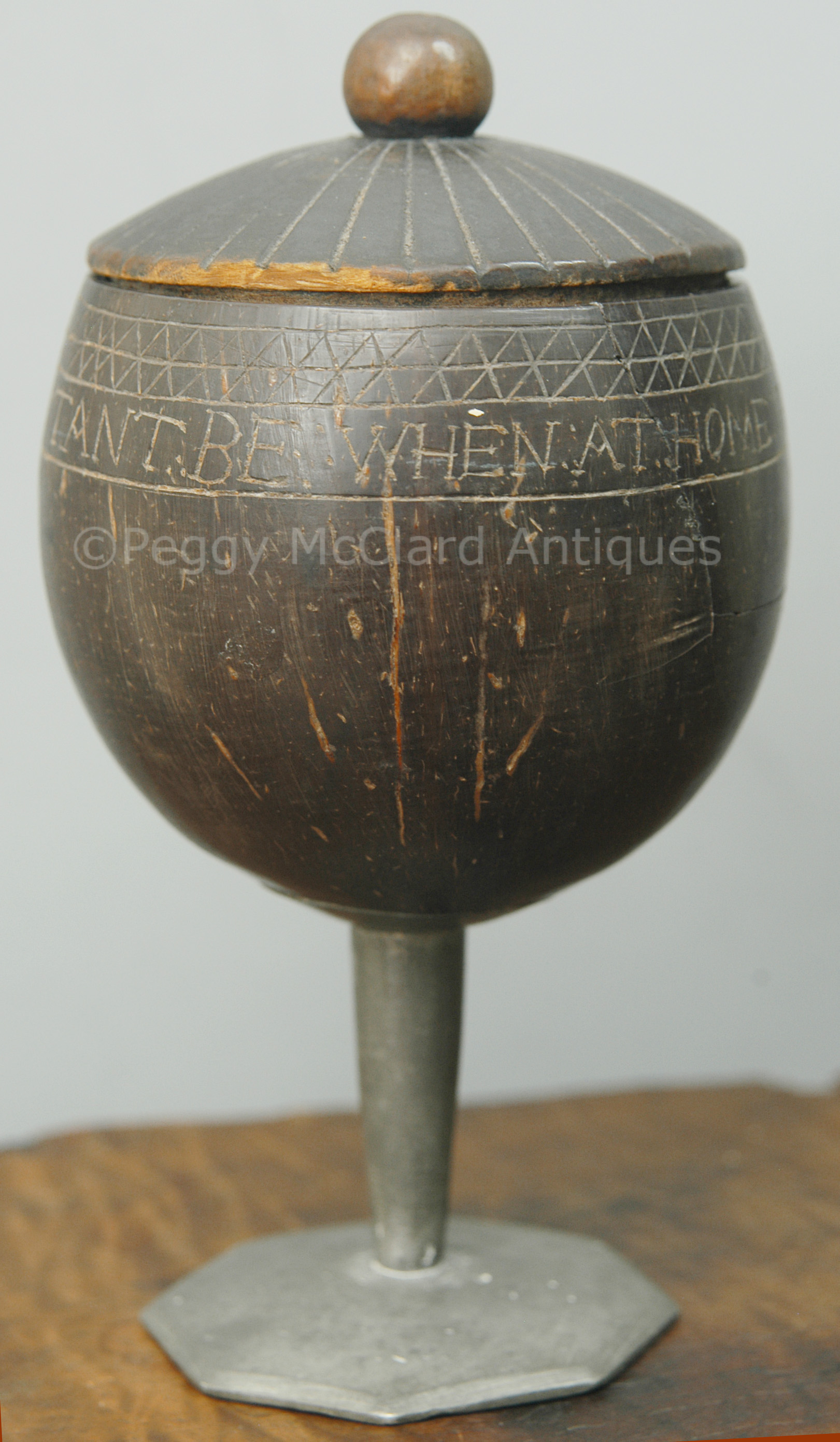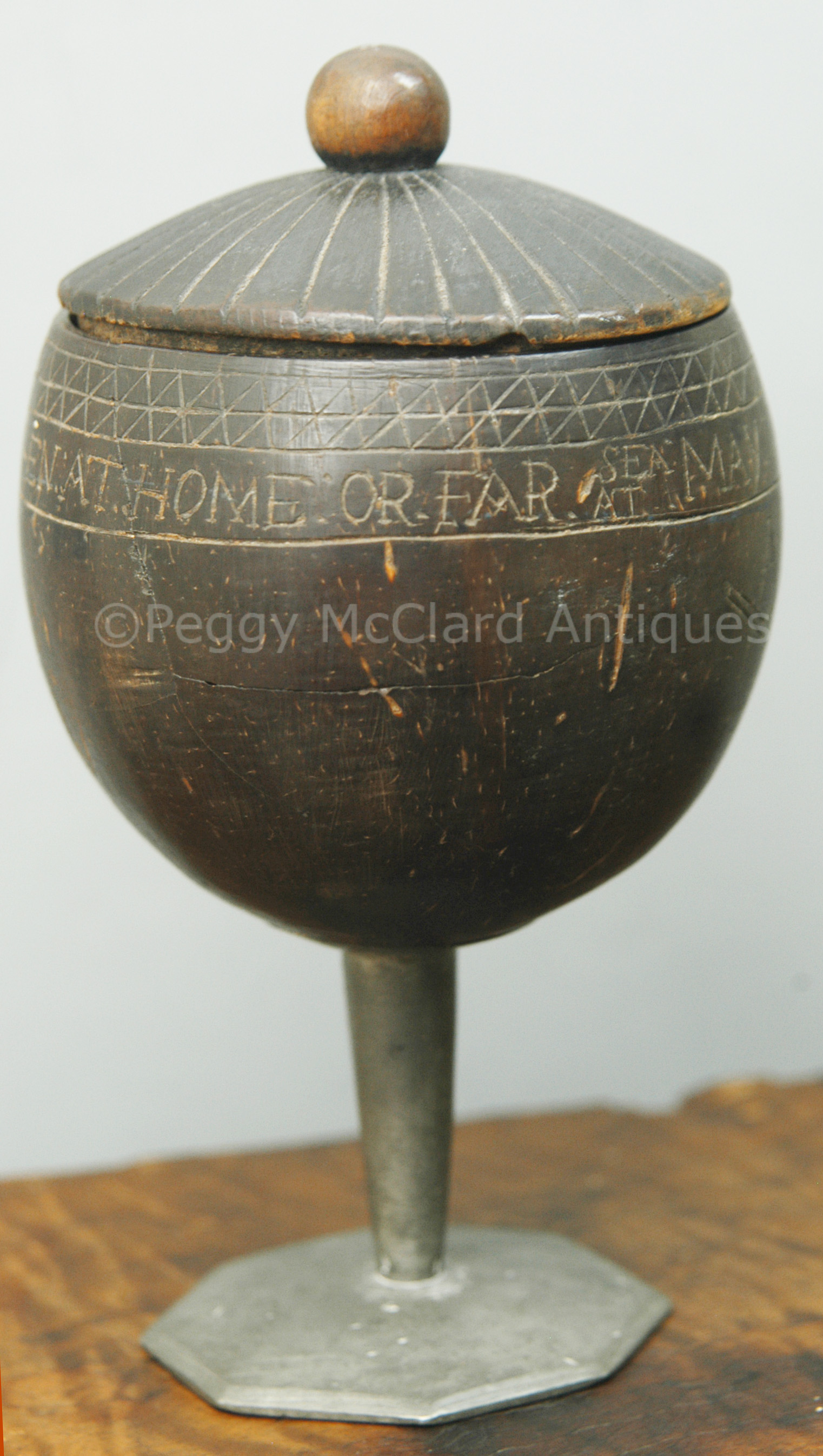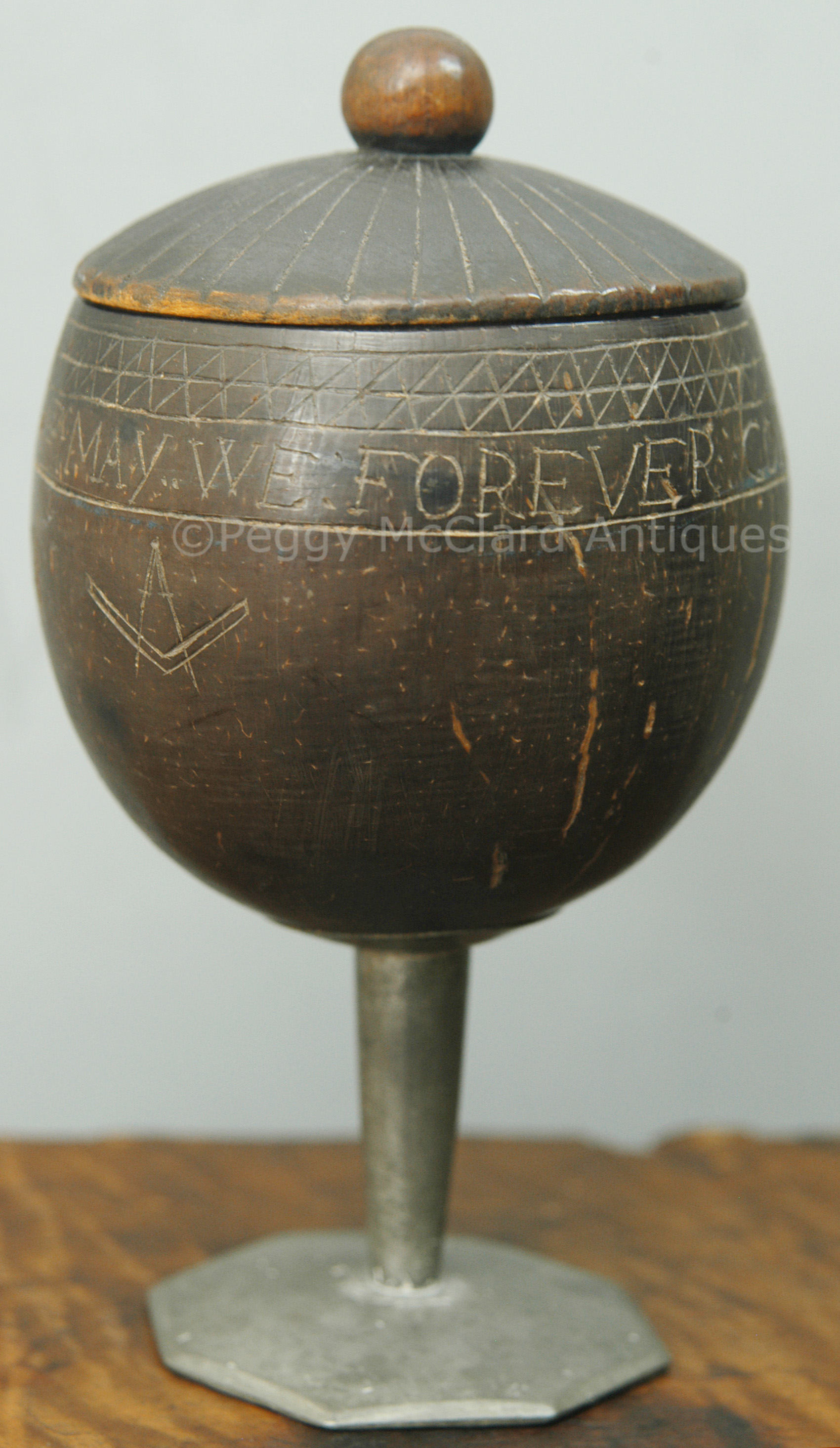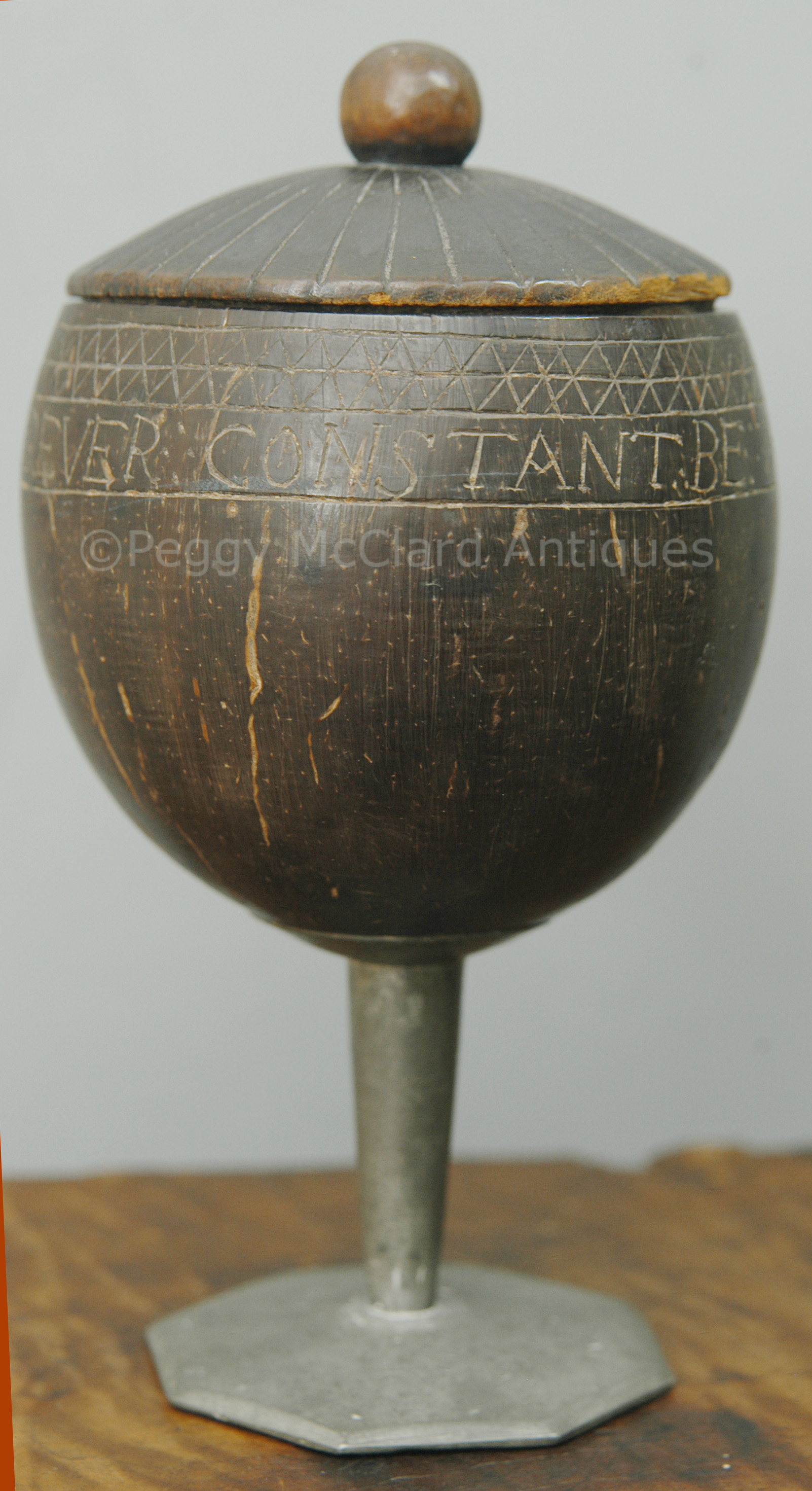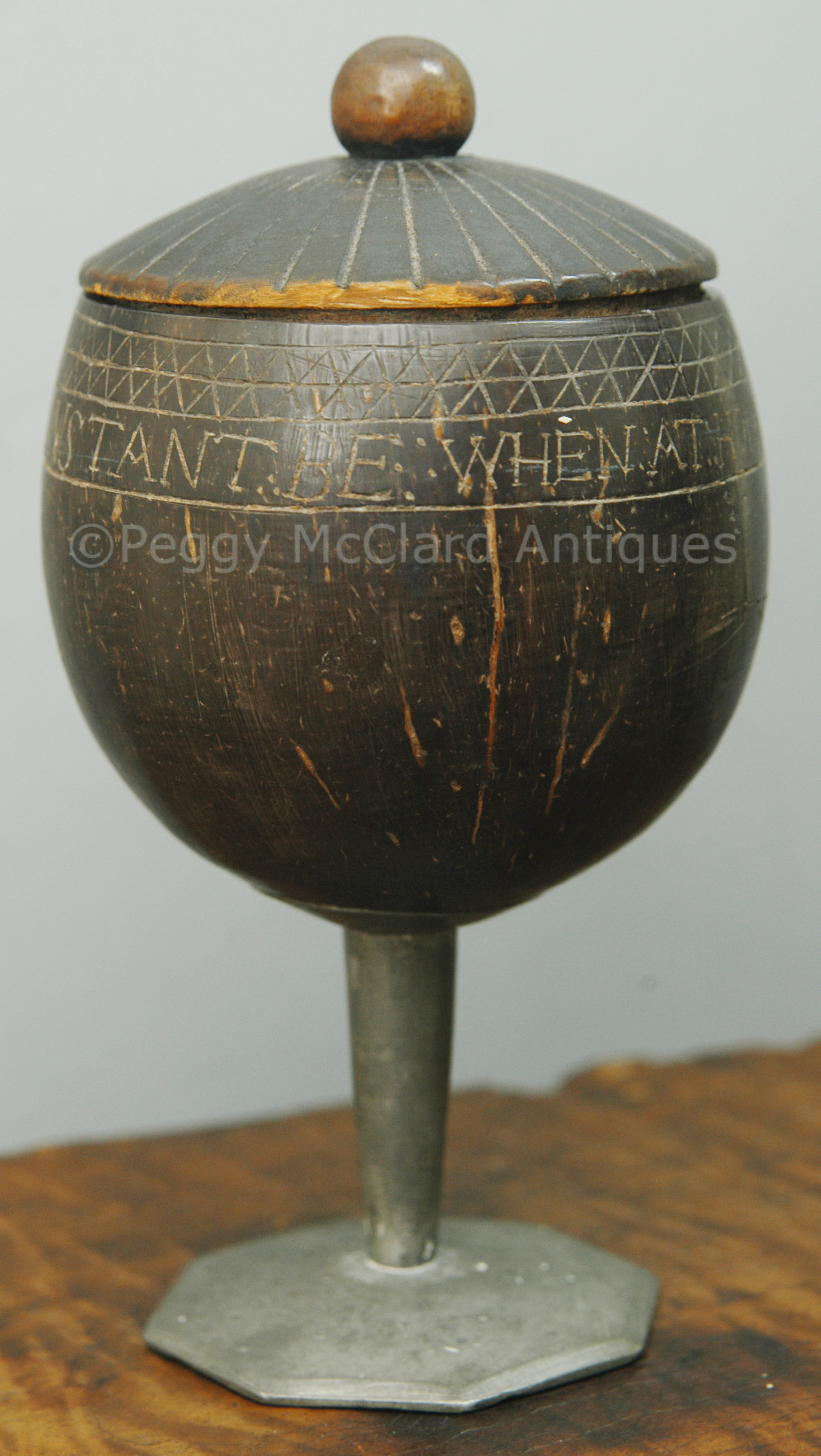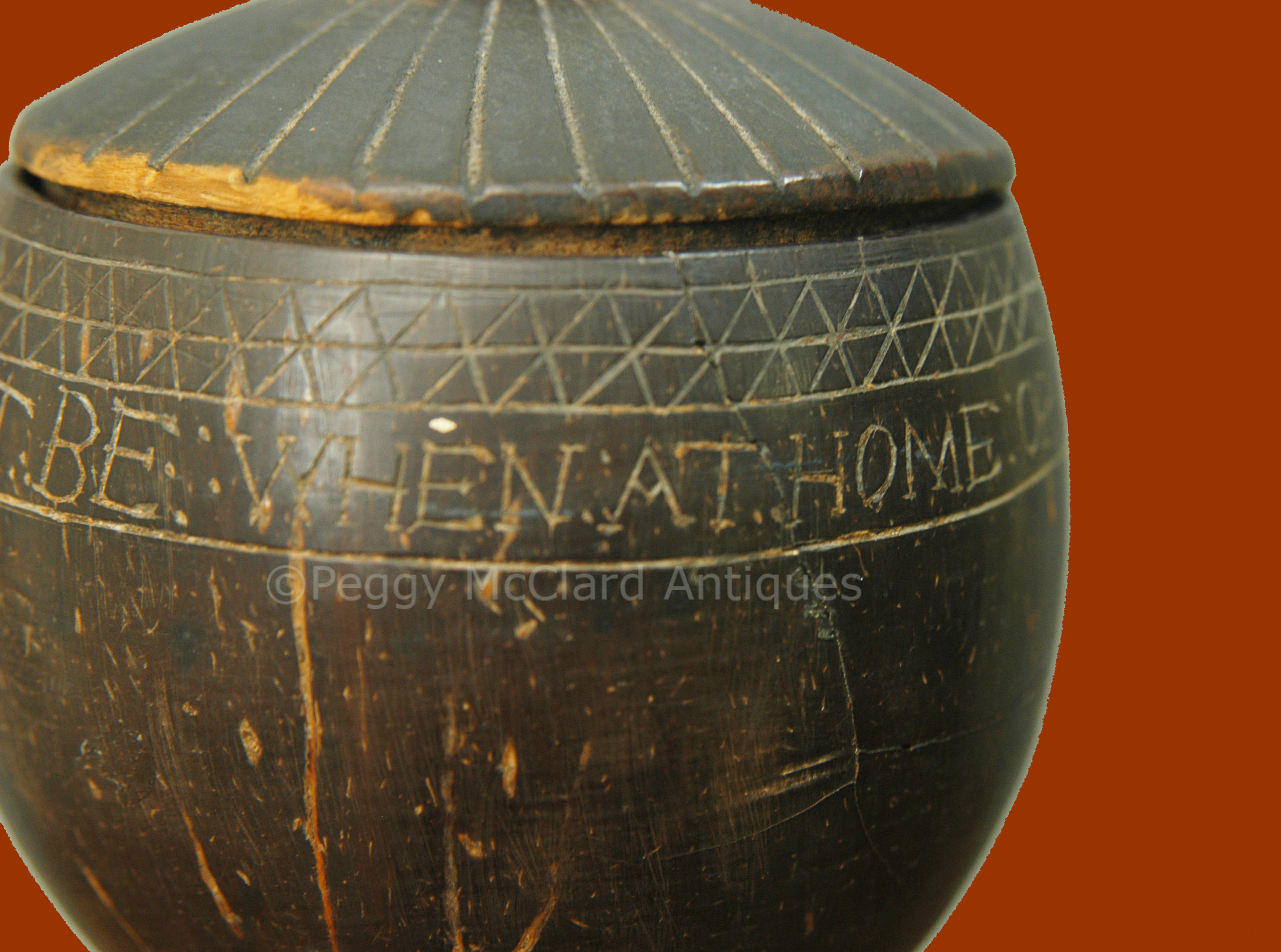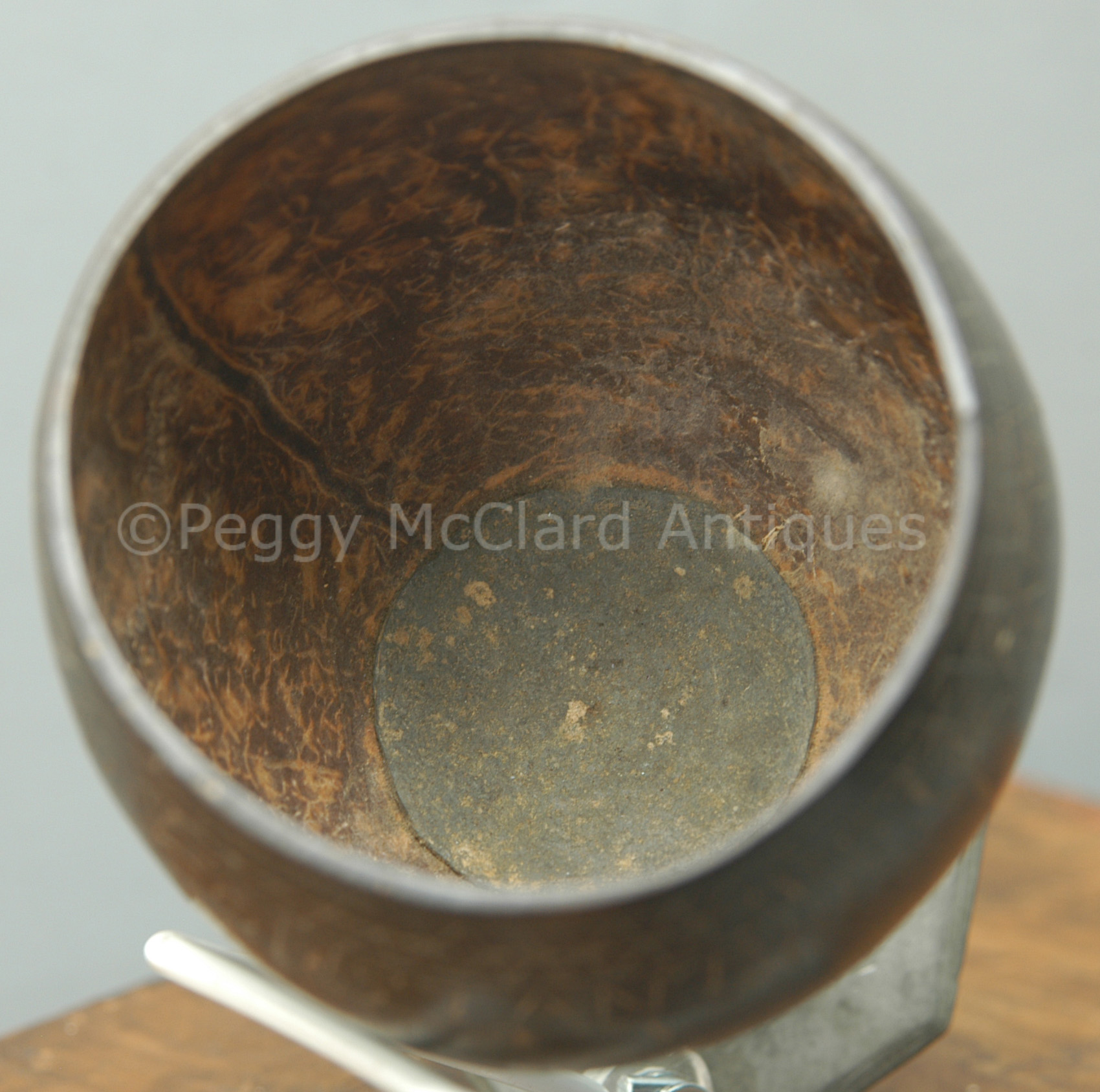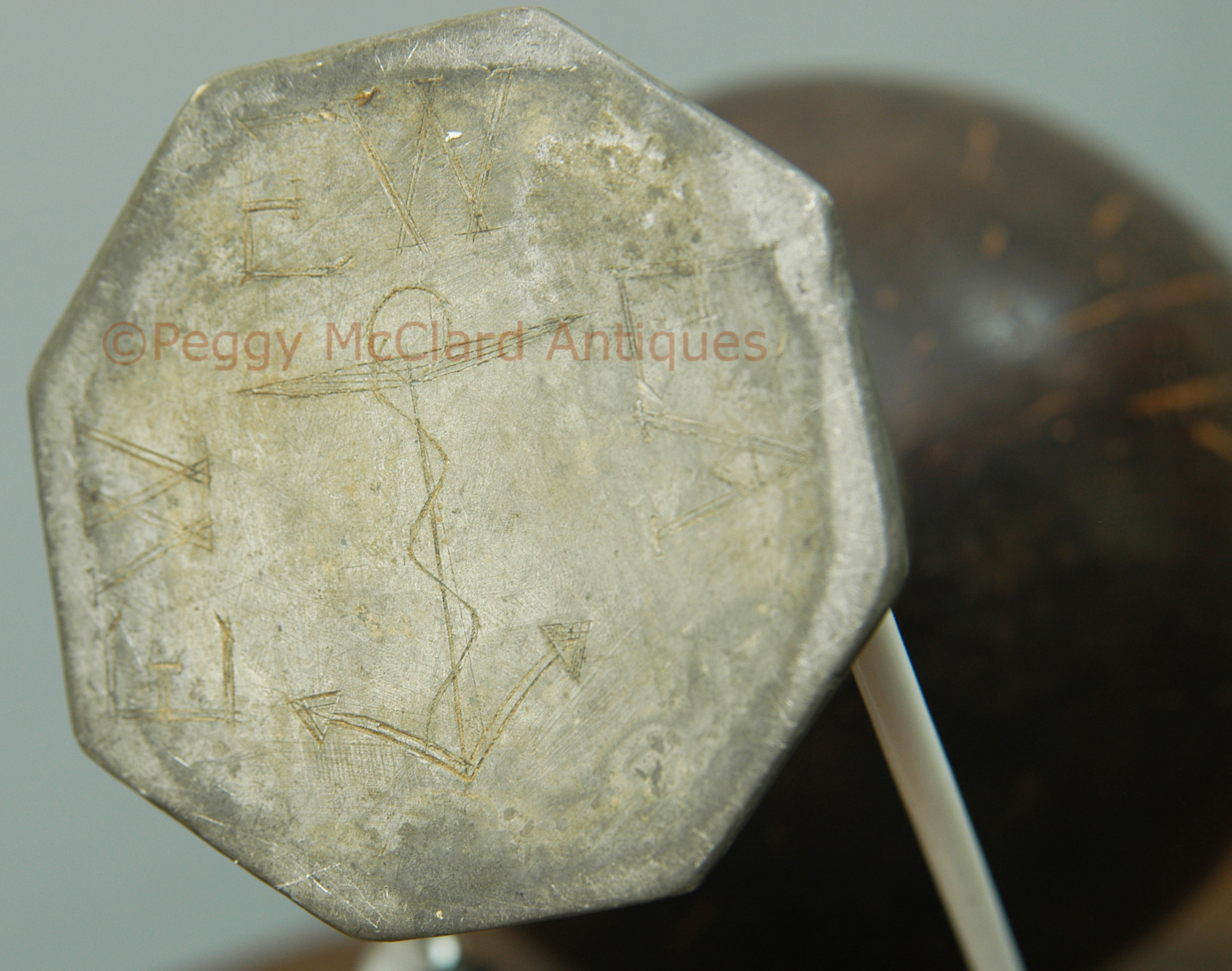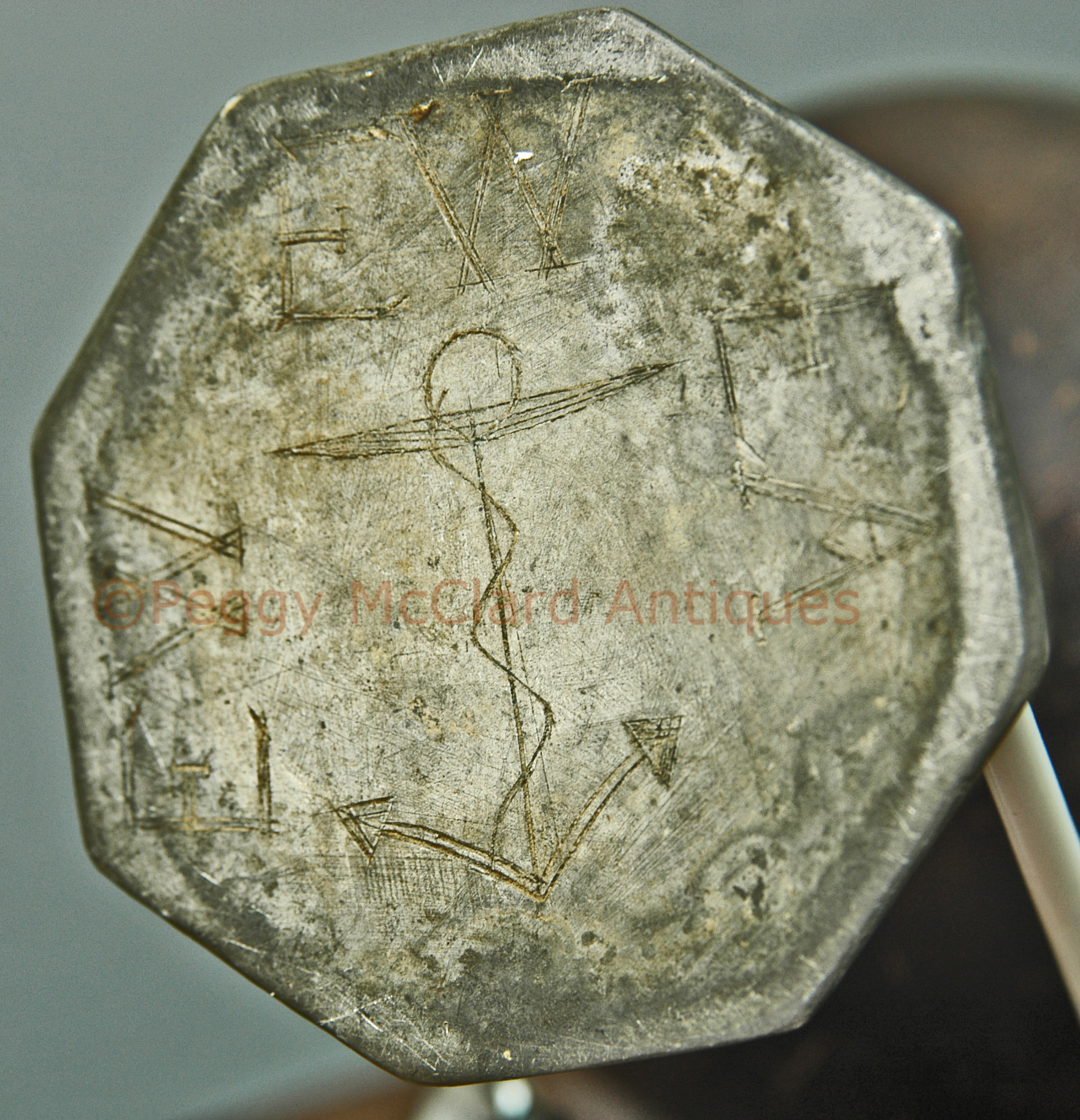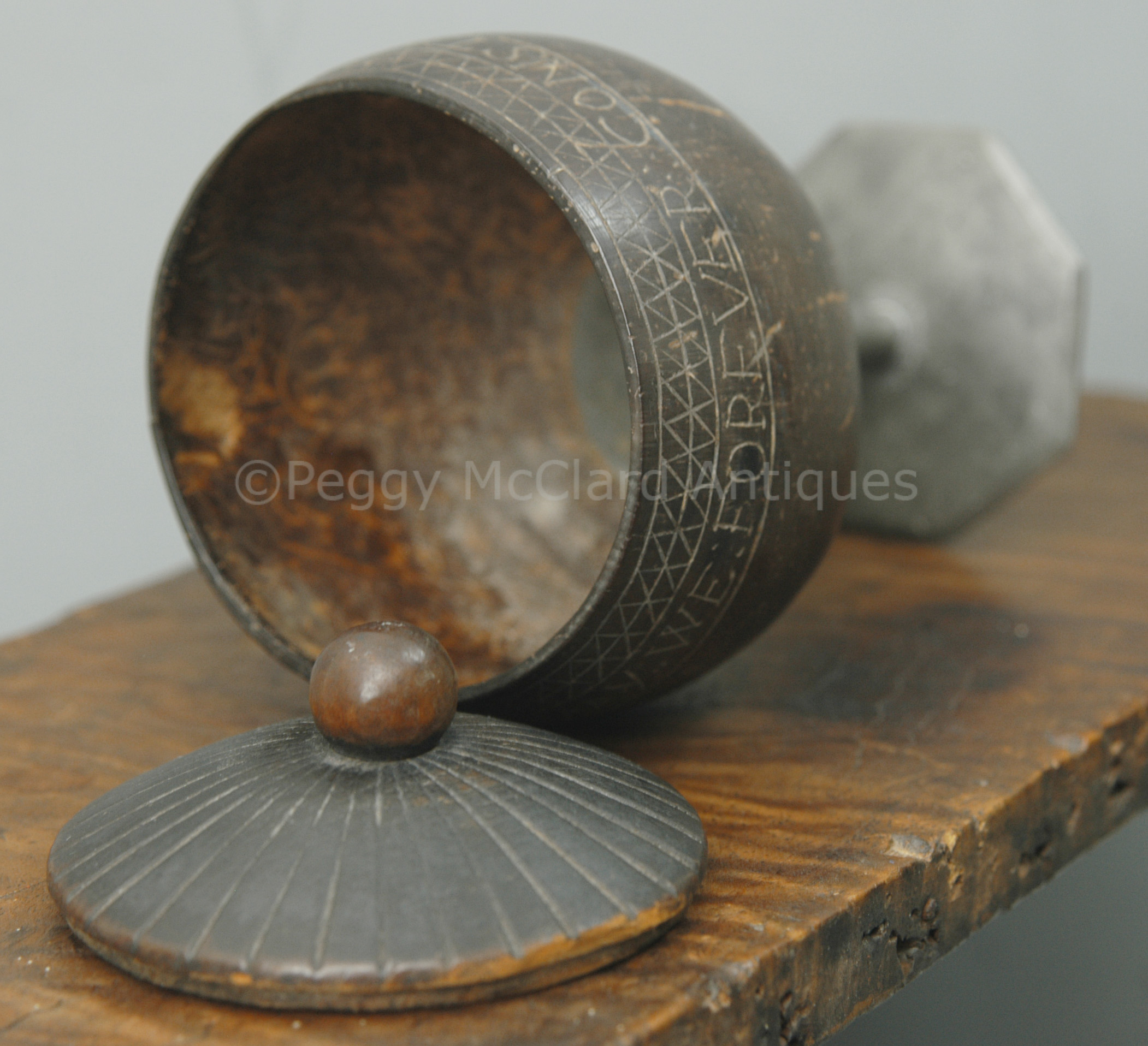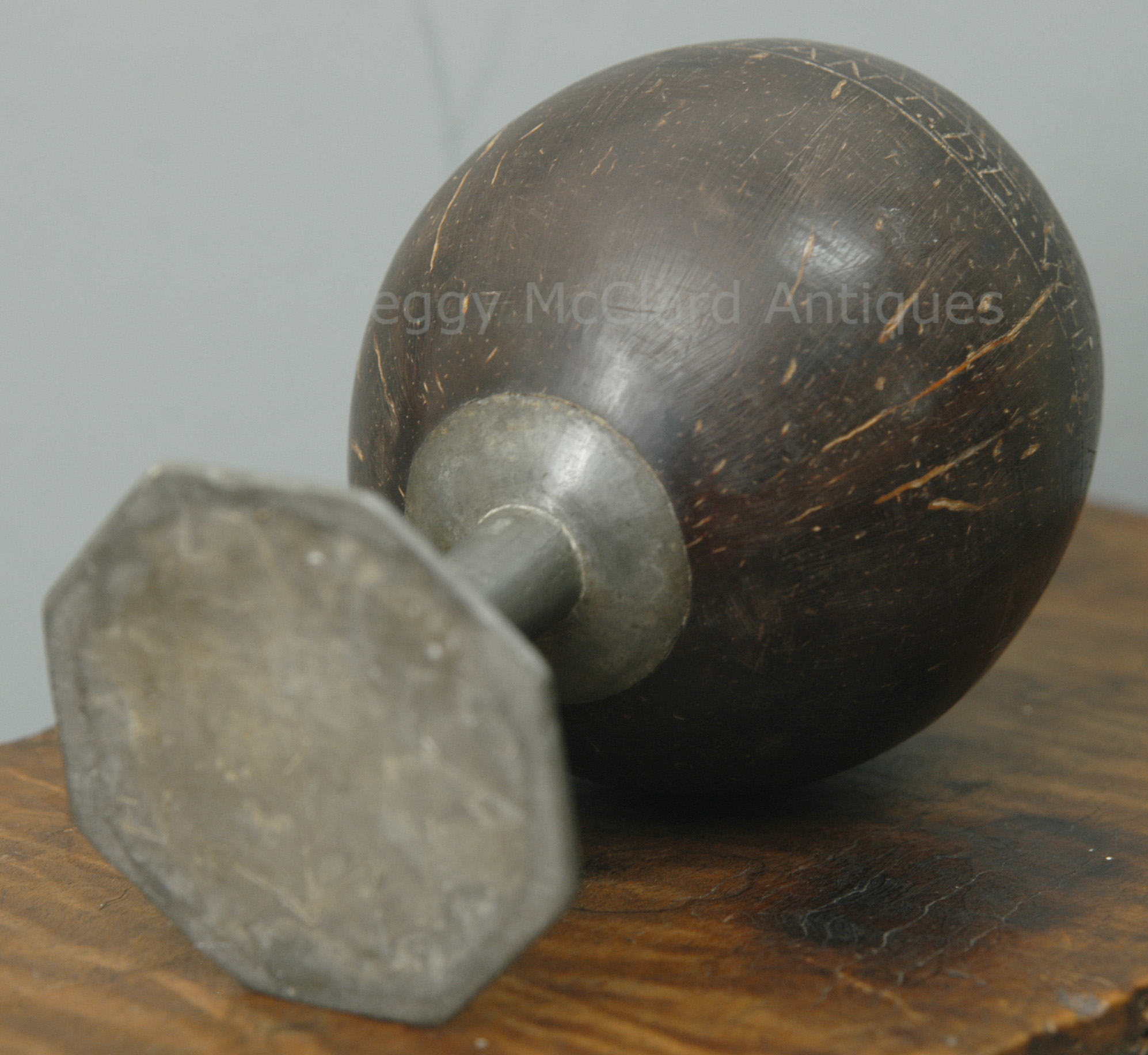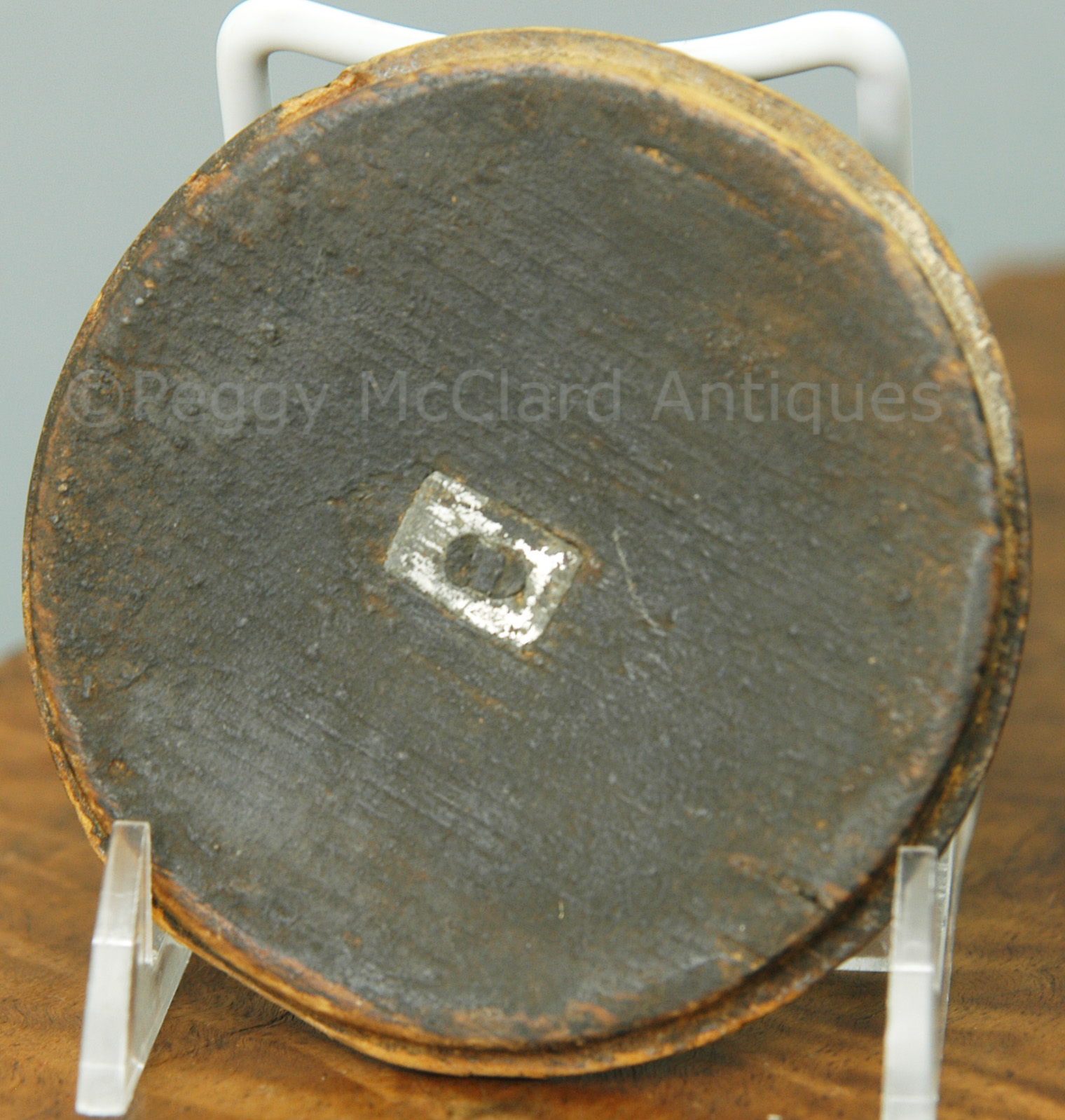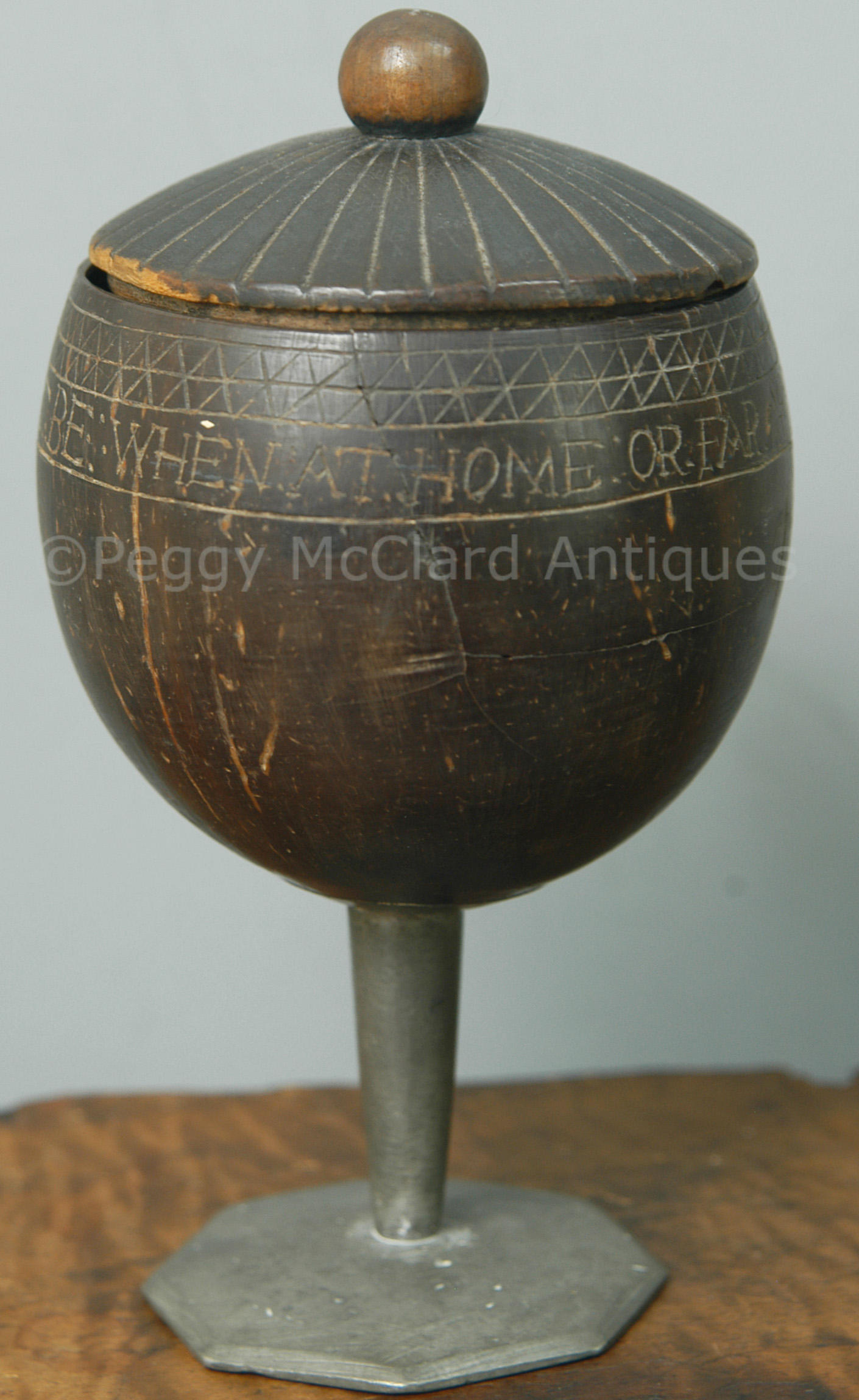
This is a fabulous nautical piece, probably carved by the Captain of a ship for his intended wife. As long as there have been ships sailing to the South Pacific and West Indies islands, there has been a generous trade of the artwork of native craftsmen to the crews of these ships. Many of these traded items included tokens of love and affection that were early collectors believed had been carved or made by the sailors. We now know that a often of these items were made by the islanders and sold to the sailors as gifts for home—one overwhelming example are the Sailor’s Valentines of shells arranged in wood cases. However, the more naïve carving on this goblet as compared to the deeper, finer and more professional carving usually found on these early carved coconuts leads me to believe that it was carved by the Captain himself and not purchased by him.
The body of the goblet bears the carved inscription, “When at home or far at sea, may we forever constant be.” Captain Williams apparently overlooked the word “sea,” which he added later above the line. Beneath the inscription is a carved Masonic symbol. Above the inscription is a carved cross-hatched decoration. The top of the coconut has been cut into a fitted lid with carved lines reaching from its round wood finial (that has the most glorious patina) to the edge. The finial is secured to the lid by what appears to be a pewter flange. The goblet sits atop a wonderful pewter stem that tapers into an octagonal base. The bottom of the pewter base bears the incised inscriptions, “EW”, “EW”, “EA” and an anchor in the center.
The goblet came to me with a fragment of notepaper, pasted to a card. The notepaper identifies the maker as a Captain Edmund Williams who lead the ship “Avalanche”, married Elizabeth Angell and was lost at sea in 1877. (I must admit that at the moment, I can’t find the document because my house is still in disarray from remodeling but I will find it soon.) After my own research into Captain Edmund Williams of the ship Avalanche, I believe that this coconut was made by an earlier, American Captain Edmund Williams.
I believe that this token of love was made by Captain Edmund Williams who was born in Cranston, Providence County, Rhode Island on September 27, 1781. His parents, Caleb Williams and Tabitha Fenner were both descended from early Rhode Island families who migrated to England prior to 1643. Some examples of early Rhode Island ancestors are: Joseph Williams, born RI 1643; Benjamin Hearndon, married 1647 in RI; Major Thomas Fenner, born RI 1652—his father Capt. Arthur Fenner, born in England but died in RI 1703. Although I have not found hard documentation to back it up, several family trees show that this Captain Williams was lost at sea in 1808 and married Elizabeth Angell. The date of marriage unknown but Elizabeth was reportedly born about 1781. American Capt. Williams has a grave at Pocassett Cemetery that gives his death as 1805. There is no photo of the marker—don’t know whether it is a memorial for someone lost at sea. American Capt. Williams would have been only 25 or 27 at the time of his death.
I only found one Elizabeth Angell from this time period. Rhode Island records her birth to Joseph and Desire Angell as March 16, 1784. She is buried in the North Burial Ground in Providence with a headstone that says “Elizabeth Angell / Daughter of / Joseph and Desire Angell / Born March 16, 1783 / Died Oct. 12, 1860”. It makes no mention of Williams—in fact, it appears that Elizabeth never married in her 77 years of life. So, perhaps the family trees are wrong in stating that Williams and Angell married (family history is often wrong). Perhaps Capt. Williams was lost at sea before they had a chance to be married and that she never again fell in love.
Now—as to Capt. Williams of the ship “Avalanche”, there is no mention of any woman in his life. This particular Williams was born about 1844 in Banghurst, Hants (I believe this in England but not positive), got his First Mate’s Certificate in 1867 and was on his second trip on the Avalanche in 1877 when it collided with the American ship “Forest” in the English Channel and sank, killing all but three on board. Capt. Williams brother, Sydney, erected a memorial in the Captain’s honor at Papworth Everard. Williams will was probated by his brother and he was listed as “a Bachelor”.
The buyer will receive all of my research findings on both Captain Edmund Williams. Because the only tie that I can find for an “EA” to either is Elizabeth Angell, who is referenced in the note that came with the goblet, I find it more likely that this coconut was presented from the Rhode Island Captain than to the English Captain.
This is a very special piece of nautical folk art and Americana that can take a lead role in any collection. In my opinion, circa 1800.
#5696 $2950

